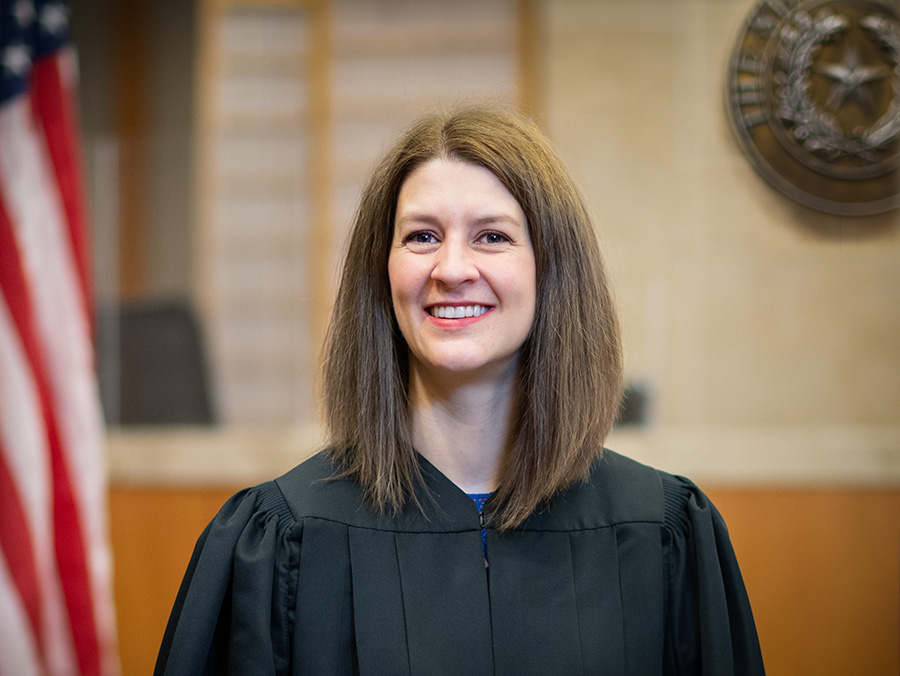
When the coronavirus pandemic made it difficult for large groups to gather, Judge Emily Miskel ('99 TAMS) was brainstorming solutions about how her court could still proceed.
"There aren't a lot of judges who were math and science nerds, so I bring that to the table," she says.
Miskel, a former engineer who often speaks on technology issues and the law, oversaw the nation's first online jury trial this May for the 470th District Court of Collin County. The trial led to Miskel winning the William H. Rehnquist Award for Judicial Excellence from the National Center for State Courts for demonstrating "outstanding qualities of judicial excellence." U.S. Supreme Court Chief Justice John Roberts congratulated her on the award in a virtual ceremony.
"I'm a practical problem solver," Miskel says. "I'm not going to dither about why we're in this situation."
When the Texas Office of Court Administration suggested testing a virtual trial jury on a group text with judges, they responded with all sorts of questions and concerns.
But Miskel found a way. She proposed a summary jury trial, an alternative dispute resolution process that involved a one-day trial over an insurance issue that would go to mediation -- a process that uses juries, but is nonbinding.
"It took a lot of work," she says. "I definitely practiced and workshopped."
Juries deliberated in breakout rooms and reviewed evidence on Dropbox. Miskel helped troubleshoot technical issues with the jury, such as instructing one juror to rotate her phone into landscape mode. At one point, a juror hadn't returned after a 15-minute break, and they had to call him.
But the trial went smoothly -- and also won national attention from such news outlets as Inside Edition and even a few jokes from The Daily Show (jump to the 1:38 mark).
"Oh my gosh, I was so relieved," she says. "There were no big snafus. The jurors were very engaged with the process."
Since court proceedings are open to public, they are now streamed on YouTube.
"It's a neat opportunity for the public to see how we are preserving people's rights," she says.
Technology has been part of Miskel's wheelhouse since she came to UNT as a high school student to attend UNT's prestigious Texas Academy of Mathematics and Science, the nation's first early-entrance, residential program for gifted students interested in pursuing STEM fields.
"I loved TAMS," she says. "I liked being in a place with my fellow nerds."
After TAMS, she studied mechanical engineering at Stanford University and worked as a project engineer overseeing oil and gas pipelines and refineries for a California firm. But she wanted a change.
"I like solving problems, but I liked it better when people are involved," she says.
She received her juris doctorate from Harvard Law School, then worked on intellectual property litigation and family law before going into the judiciary.
"It is tough because everyone you're dealing with is stressed," she says. "You are dealing with conflicts, upset people. When you make a ruling, half the people are mad about it."
But the job also brings its rewards.
"We are the third branch of government," she says. "We work for the people. It's a proud opportunity to serve our country."